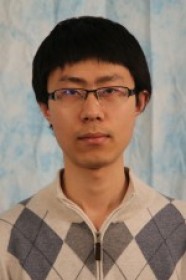
10:00 am to 11:30 am
GHC 8102
 Yuxiong Wang
Yuxiong Wang
Carnegie Mellon University
Abstract
Understanding how to recognize novel categories from few examples for both humans and machines remains a fundamental challenge. Humans are remarkably able to grasp a new category and make meaningful generalization to novel instances from just few examples. By contrast, state-of-the-art machine learning techniques and visual recognition systems typically require thousands of training examples and often break down if the training sample set is too small.
This thesis focuses on endowing visual recognition systems with such low-shot learning ability. Our key insight is that the visual world is well structured and highly predictable in not only feature spaces but also model spaces. In this spirit, we address key technical challenges and explore different and complementary perspectives. (1) Inspired by developmental learning, we progressively grow a convolutional neural network with increased model capacity when transferring on target tasks through fine-tuning. (2) We leverage prior work in learning to learn by encoding a generic, category agnostic transformation via a deep model regression network from models learned from few samples to models learned from large enough sample sets. (3) We capture a more generic, richer description of the visual world by encouraging the top layer units of convolutional neural networks to learn diverse sets of low-density separators during an additional phase of unsupervised meta-learning.
In proposed work, we aim to extend these perspectives to (1) progressively self-grow a network with compositional or interleaved modules when learning from continuously evolving data streams and tasks; (2) cast small-sample recognition itself as a learning problem by leveraging the entire learning process and model dynamics; and (3) hallucinate additional examples by leveraging the joint regularity from generative adversarial learning and large-scale unsupervised data. Finally, combining these approaches and perspectives, we further propose learning predictive model structures through exploration and exploitation.
Thesis Committee
Martial Hebert, Chair
Deva Ramanan
Ruslan Salakhutdinov
Andrew Zisserman, University of Oxford
Yann LeCun, Facebook AI Research & New York University
